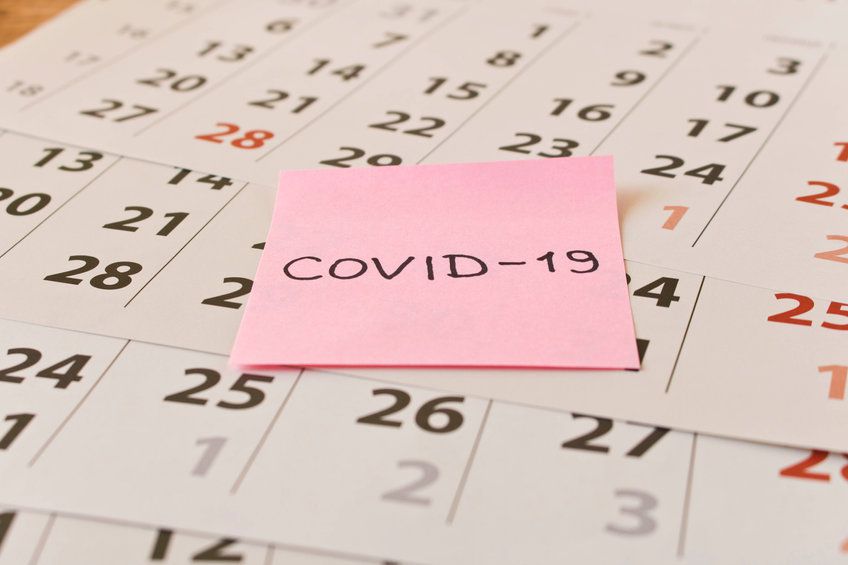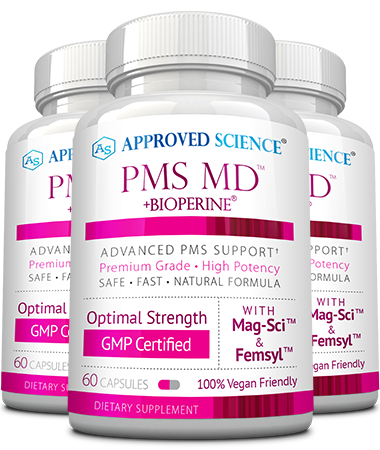With more than 7 billion Covid vaccine doses administered and more than 3 billion people around the world fully vaccinated, there is growing optimism that the population will soon experience a return to some level of normalcy. This is, however, not to dismiss the severity of the virus and its mutation potentially requiring vaccinated individuals to procure a booster dose. And even then, it is difficult to predict if and when the entire population will be fully vaccinated.
There is still much we do not know about the virus, its mutation into variants, and the effects that it or the vaccination administration has on the body. While common side effects of Covid vaccination include fever, pain in the arm, and flu-related symptoms, there is growing concern that Covid vaccination may impact a woman’s menstrual cycle.
In this article, we explore whether or not there is a link between Covid and menstrual cycles according to recent studies and publications.
The Need to Investigate the Link Between Covid and Menstrual Cycles
The need to investigate the link between Covid and menstrual cycles comes as a response to the BMJ publication, which you can read here. In the article, Victoria Male, a leading immunologist specializing in fertility from the Imperial College London, discusses the importance of analyzing the effect of Covid on the menstrual cycle, if any at all. She signifies the relevance of this analysis as a response to reports that over 30,000 women have reported menstrual changes since receiving their first dose of the vaccination. This is interesting to note as health organizations, medical practitioners, and industry scientists have not previously indicated said symptoms as a result of contracting Covid or receiving vaccination administration.
Another reason that the suggestion to research the link between Covid and menstrual cycles is receiving attention is that Covid symptoms have been previously reported to disappear approximately 2 weeks after one’s first experience of symptoms associated with Covid. Unfortunately, growing evidence suggests that some individuals experience what is called long Covid, a state whereby individuals experience ill health and Covid-related symptoms well after the supposed 2-week window. The fact that the nature of the Covid virus is evolving requires further scientific attention, and researchers should consider the link between Covid, the vaccine, and menstrual changes as per the many reports indicating its impact on the menstrual cycle.
How Covid Has Impacted Individuals’ Menstrual Cycles
We have established that there is a need to investigate the impact of Covid on individuals’ menstrual cycles as many women have reported the virus and vaccination doing so. Let us now look at how these women’s menstrual cycles were influenced by Covid and the vaccine.
Typically, women that report a change in their menstrual cycles have experienced irregular periods, uncommon blood clotting, or heightened experiences with premenstrual syndrome (PMS). That said, experiences and the degree of changes to individuals’ menstrual cycles vary from one person to the next and it is difficult to pinpoint exactly how the Covid virus and vaccination are impacting menstrual cycles. This is all the more reason to promote further research into this particular area of study.
According to authoritative sources, a woman reported that “Two weeks into my COVID-19 battle, I was supposed to get my period, and nothing came. I figured to myself, ‘I must be really sick. It will come next month.’ But nothing came the next month, either. Eight months later, and I’ve only had five periods.” Another woman contributing to the conversations stated that “In May, I skipped a whole month’s cycle of having a period. In June and then July, it returned, but [it was] very erratic, lasting a lot longer and stopping and starting”. These comments are among the many experiences shared by women regarding the coincidental changes to their menstrual cycles following the contraction of the Covid virus and subsequent vaccination.
There is clear evidence that women have suffered from menstrual cycle irregularities post-Covid and vaccination, and this should encourage researchers and medical scientists to investigate the phenomenon further.
How Menstrual Changes can Impact Lifestyle
It is important that this subject receives further attention as changes to one’s menstrual cycle can have significant effects on one’s quality of life. Beyond experiencing the symptoms of Covid, women that have reported menstrual changes following the contraction of the virus and vaccination indicate severe lifestyle consequences of aggressive menstrual cycle experiences.
Typical menstrual cycle experiences include abdominal cramps, skin breakouts, breast tenderness, bloating, fatigue, headaches, mood swings, bowel irregularities, back pain, and sleep troubles. Following Covid and vaccination, these common symptoms can be experienced more severely and can negatively impact one’s quality of life.
Furthermore, individuals that experience menstrual changes as a result of Covid have reported more severe health issues that affect one’s quality of life. Women have stated that their POTS (postural orthostatic tachycardia syndrome) worsened following the contraction of the virus, some are concerned that they have developed anemia as a result of menstrual changes following Covid contraction, and others have expressed worries regarding the cardiovascular impacts of menstrual changes after contracting the Covid virus.
Whether or not these health issues are directly related to Covid and the vaccination is still to be assessed, however, the prevalence of these issues should promote the continued investigation and scientific study to come to conclusions regarding these concerns and effects on one’s quality of life.
How to Combat Menstrual Changes
If you have, like these other women, noticed any discernible differences in your menstrual cycle then you should implement several strategies to combat these changes and help improve your quality of life should Covid and the vaccination have affected your menstruation.
Support Your Body With Supplements
Supplements are formulated to help the body deal with a variety of health issues, and there are supplements designed to ease symptoms associated with menstrual cycle changes.
PMS MD™ is a product specifically designed to support women experiencing symptoms of menstrual cycles. The formula is clinically proven with several key natural ingredients known to reduce anxiety and depression, increase mood and energy, alleviate pain and aches, and regulate menstrual flow. The product is supported by quality control certificates and a money-back guarantee that provides comprehensive consumer protection and security, giving you peace of mind when shopping with the quality manufacturer.
The blend of B Vitamins, Magnesium complex, and trademarked Femsyl Oil Blend are primary ingredients found in the formula that will provide the body with nutrients needed to combat menstrual changes and cycle symptoms.
Focus on Your Wellbeing
Beyond supplements, a stronger focus on your health and wellbeing can help alleviate common symptoms of menstrual cycles as well as the onset of more severe conditions associated with the link between Covid and menstrual changes. Eating healthy foods with natural anti-inflammatory properties, such as almonds and fatty fish, exercising regularly to release endorphins responsible for reducing pain, and reducing stress through meditation and mindfulness techniques can support your experiences with menstruation.
Your Takeaway
There appears to be a link between Covid and the menstrual cycle. Although more research needs to be done, scientists are encouraged to continue exploring the possible connection as a response to thousands of women reporting menstrual changes following Covid contraction and vaccination. We should see further evidence released as these studies continue to be conducted.


